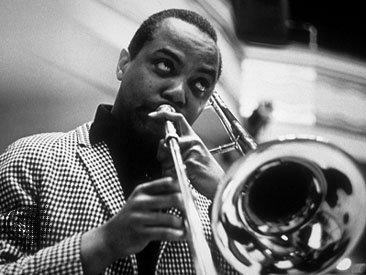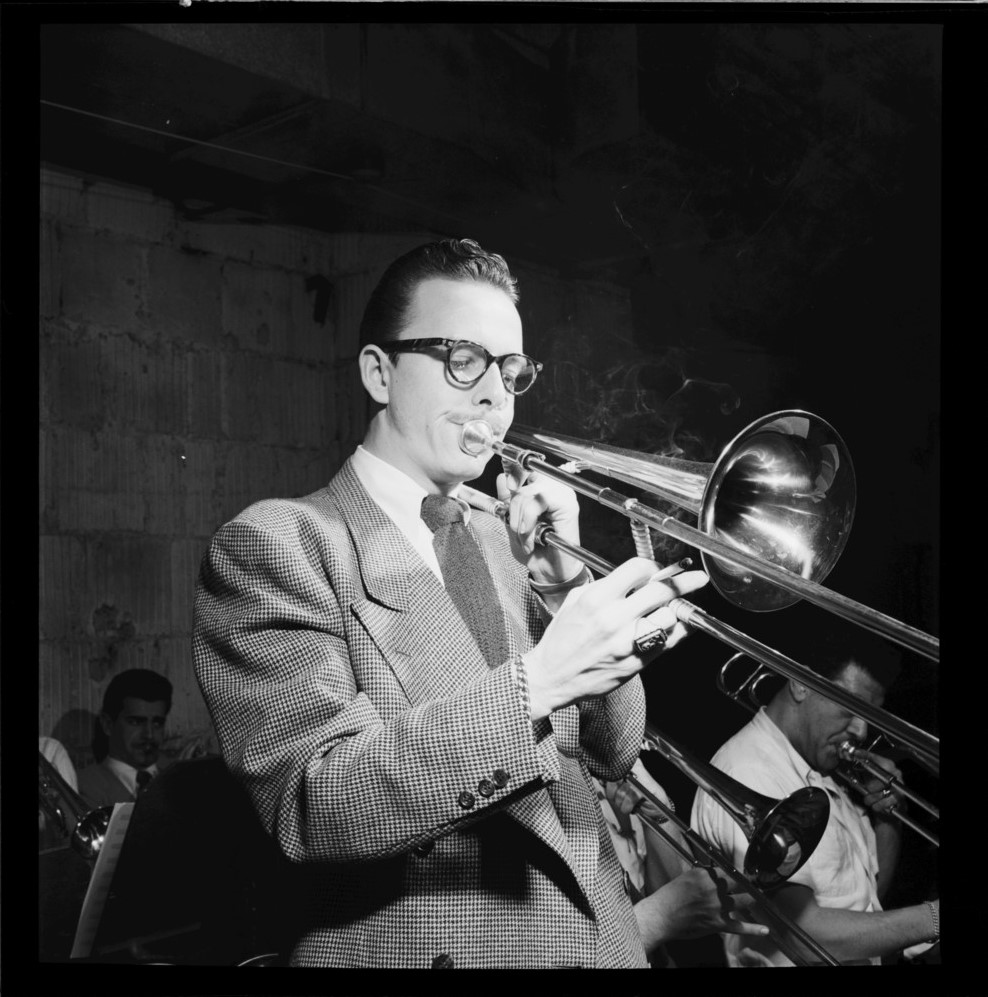Bebop
Origin of Bebop
Bebop is a style of jazz that originated in the 1940s. This style often involves fast tempos and has a profound emphasis on individual improvisation. When this style first emerged, it was loathed by swing enthusiasts since the style was too fast to dance to. Bebop ensembles were composed of small combos rather than big bands largely due numerous jazz musicians being drafted for World War II. The early pioneers of bebop were Charlie Parker (alto saxophonist), Dizzy Gillespie (trumpeter), and Thelonious Monk (pianist). Bebop initially seemed impossible to play for trombonists because they couldn't keep up with the fast tempo with their slides. However, prominent trombonists during the era of bebop adapted to this style in short time.
Influential Trombonists
JJ Johnson

Probably the most well-known trombonist, JJ-Johnson was born in 1924 in Indianapolis, Indiana. Rather than being influenced by other trombone players, he was more influenced by the music being played by Charlie Parker and Dizzy Gillespie. Johnson possessed a very smooth and consistent sound throughout the upper and lower ranges of his trombone. His style of playing was so revolutionary at the time that many experts credited him of successfully implementing trombone into bebop. Johnson rarely used vibrato and had a staccato approach to playing.
JJ Johnson
You can notice right away the fast style when it comes to bebop. JJ
uses simple licks and staccatos in order to keep up with the fast
style. Compared to swing, the quintet usually starts with the head
of the tune, goes into solos, and pops back out with the head again.
Kai Winding

Possessed with a similar, but distinct sound compared to JJ Johnson, Kai Winding was born in 1922. At the age of twelve, he and his family immigrated to the United States from Denmark. Winding had the virtuosity to play fast melodic lines of bebop while retaining the influence of swing trombonists in his phrasing. One album in particular titled The Great Kai & J.J., featured the skills and technique by both JJ Johnson and Kai Winding.
JJ Johnson and Kai Winding
This live session of "It's Alright With Me" shows the difference of
playing between Johnson and Winding. JJ uses more staccatos while
maintaining that smooth tone. Kai implements more swing in his
playing while possessing a bit of a rougher tone. The chemistry
between them is unmatched.